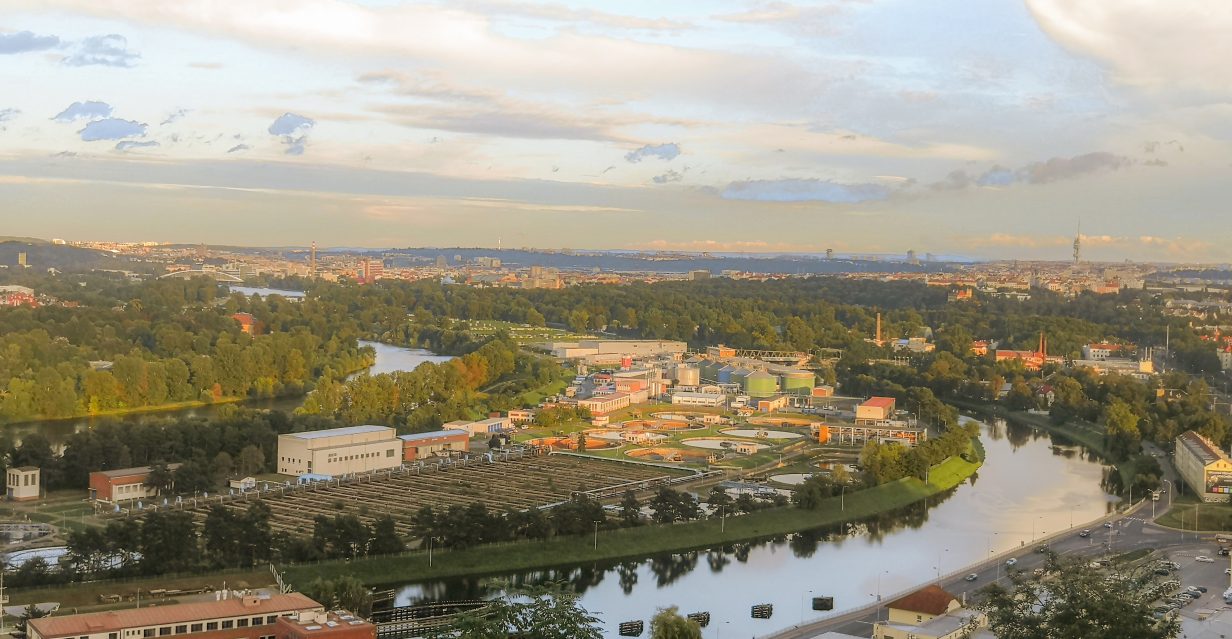
Under the leadership of the Water Research Institute T.G.M., v.v.i. and in cooperation with the Research Institute of Agricultural Technology, v.v.i., we are involved in the implementation of a project to identify the conditions under which wastewater treatment plants can be operated with lower greenhouse gas emissions while maintaining sufficient wastewater treatment efficiency. The project Greenhouse gas emissions from wastewater treatment plants and possibilities for their reduction (EMČO) reflects the fact that there is still no centralised monitoring of greenhouse gases produced during wastewater treatment.
In large wastewater treatment plants (WWTPs), CH4 combustion from digestion tanks has been introduced, but emissions are not monitored in the other process stages, even if significant quantities of GHGs are also emitted from “aerobic” stages, e.g. from the free levels of activation tanks or dosing tanks. In the case of smaller WWTPs, it can be said that emissions are not controlled at all, and a similar situation arises in the case of N2 O, which is not monitored in any WWTPs today.
A sub-objective of the project is also to determine CH4 and N2 O emissions from real municipal WWTPs by measurement. On the basis of these measurements, emission factors for individual gases will be determined, which will then contribute to the refinement of national GHG inventories for the respective source category. The measurements will be carried out in particular on the technologies that are most represented in the Czech Republic and have significant shares in the volume of treated wastewater in the Czech Republic.
More information about the project here.

